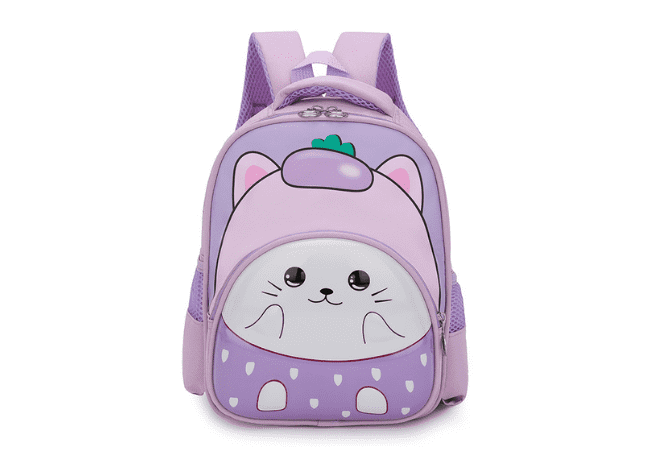
A school backpack’s lifespan depends on quality, usage habits, and maintenance, but most well-made backpacks should last 1–5 years. Here’s a detailed breakdown to help you maximize its longevity:
1. Average Lifespan by Backpack Type
| Backpack Type | Expected Lifespan | Key Factors |
| Budget Backpacks | 1–2 years | Thin fabric, weak zippers |
| Mid-Range Backpacks | 2–4 years | Reinforced seams, thicker nylon |
| Premium Backpacks | 4–8+ years | Cordura fabric, YKK zippers |
2. Signs It’s Time to Replace a Backpack
Structural Damage: Torn straps, broken zippers, or holes in the fabric.
Loss of Support: Padded straps or back panels flattening out.
Stitching Failure: Seams unraveling at stress points (e.g., bottom corners).
Mold or Odors: From spills or improper storage.
3. How to Extend Your Backpack’s Life
Daily Care Tips:
Avoid Overloading: Keep weight under 10–15% of the user’s body weight.
Clean Regularly: Wipe with a damp cloth; machine-wash only if labeled safe.
Rotate Use: Alternate between two backpacks to reduce wear.
Repair vs. Replace:
Fixable Issues: Replace zipper pulls, patch small holes, or reinforce stitching.
Irreparable Damage: Retire the backpack if the frame or straps break.
4. When to Buy a New Backpack
For Younger Kids (5–10 years): Replace every 1–2 years due to growth spurts and rough use.
For Teens/Adults: Invest in a high-quality backpack that lasts through middle/high school or college.
Key Takeaway
A backpack’s lifespan is a balance between initial quality and user care. Spend wisely on durable materials (e.g., 600D polyester), teach kids to avoid overstuffing, and address minor repairs early. A well-maintained backpack can save money and reduce waste!
Pro Tip: Check warranty policies—many brands offer free repairs or replacements for defects.



